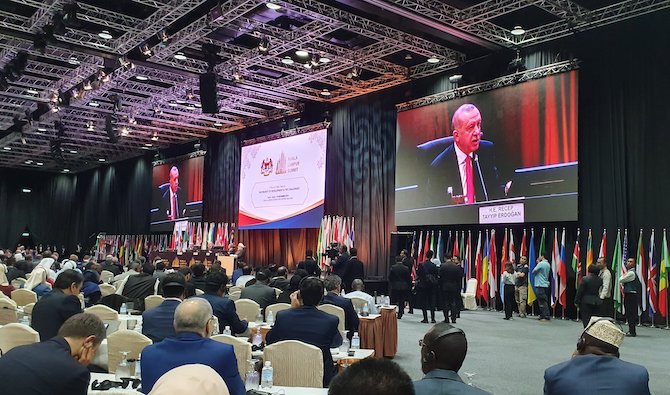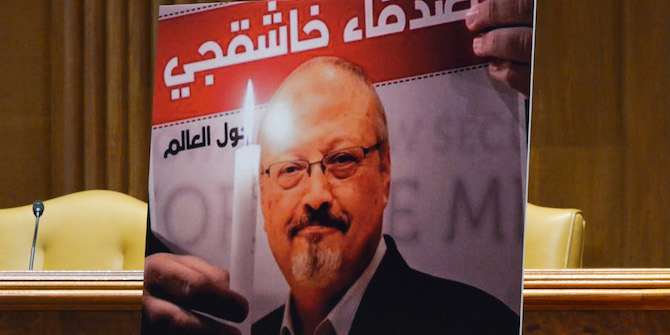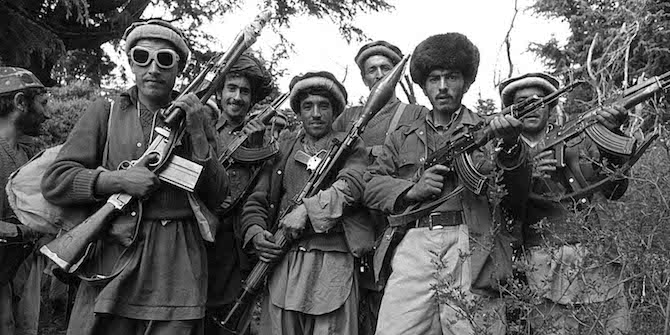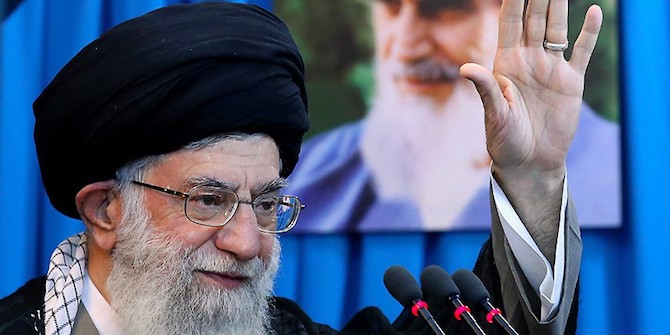by Umer Karim

The Arab Spring protests have proven to be a watershed moment for the Middle East’s geo-political fault lines. These civic mobilisations had an impact beyond the Middle East and created structural incentives for new political players across the region to increase their political capital, often at the expense of others. 2011’s events paved the way for actors such as Turkey and Qatar to challenge for leadership roles in the region’s new configuration – previously characterised by rigid sectarian, ideological and ethnic divides – and posed a serious challenge to the established hegemons, namely Saudi Arabia and Iran.
This dynamic was at play during Malaysia’s recent Kuala Lumpur Summit where Pakistan and Indonesia withdrew their participation after initially accepting the invitation. The controversy further escalated as Turkish President Recep Tayyip Erdoğan alleged that Pakistan backed out owing to Saudi pressure. These developments raise questions regarding the current state of this rivalry for the leadership of the Muslim world, the methods employed by the leading contenders for this role, and where Pakistan stands in all of this.
Pakistan has been a long-term ally of Saudi Arabia. The Saudi royalty have established strong personal ties with Pakistan’s political class and Islamabad’s support for Riyadh in the security realm has added a strategic hue to the bilateral ties. Iran and Pakistan had previously enjoyed cordial ties and have remained erstwhile allies, but after Iran’s Islamic revolution the relationship cooled significantly and since then has never fully recovered.
Turkey has long been a close partner for Pakistan, whose civilian and military elites have maintained ties with their Turkish counterparts since independence. Yet it was Turkey’s Islamist turn, initiated by the ascendance of the political maestro Erdoğan, that projected Turkish power onto the Islamic world’s political landscape. For the first time, Turkish power projection was directed towards the Muslim world and the massive surge in the country’s soft power through its soap operas – though often depicting a very secular lifestyle – helped this cause even further.
Unlike Saudi Arabia or Iran, who often have focussed on particular constituencies within Pakistan or relied on personal relationships, Turkey has used institutional mechanisms in its foray into Pakistan. It has started investing in projects ranging from public transportation to municipal waste collection, as well as injecting foreign aid into capacity building projects overseen by TIKA (Turkish International Cooperation and Development Agency), an organisation that has assumed a strategic significance under the AKP government.
In the meantime, President Erdoğan developed personal ties with then Pakistani premier Nawaz Sharif and his family. These developments made Turkey a formidable contender for the hearts and minds of Pakistanis.
Two key political developments impacted upon this state of affairs, though without changing the perceptions of Pakistanis towards Turkey or its leadership. One was the electoral success of Imran Khan that led to a rejuvenation of Pakistan’s relationship with Saudi Arabia and the UAE and the removal of Nawaz Sharif who had been moving closer to Turkey and Qatar. The second was the deterioration of Turkish-Saudi bilateral ties following Turkish support for Qatar during the Gulf Crisis 2017 and the murder of Saudi journalist Jamal Khashoggi in its consulate in Istanbul. This made it more difficult to navigate the new political fault lines within the Middle East.
Under Imran Khan, Pakistan has focussed more on mending ties with Saudi Arabia and the UAE, which had suffered since Pakistan’s refusal to join the conflict in Yemen. It was in this vein that the Pakistani premier attended the Future Investment Initiative Summit in Riyadh even though it was held in the wake of Khashoggi’s murder. The sanctioning of the Gülen movement as a terrorist entity – a significant gesture of political goodwill – helped to put Pakistan-Turkey relations back on track after being derailed upon the departure of Nawaz Sharif.
The decision by Malaysia to hold a Muslim summit in Kuala Lumpur and inviting, among others, Turkey, Qatar and Iran sparked the ire of Saudi Arabia, which viewed it as a grouping of its rivals within the region. The Kingdom also saw it as an attempt at creating an alternative to the Organization of Islamic Cooperation (OIC), headquartered in Jeddah.
Evidently Pakistan, having already accepted the invitation to the summit, wasn’t prepared for this new dynamic and was left between a rock and a hard place. At one end was the unflinching and vocal support of Turkey and Malaysia on the Kashmir issue, while on the other was the age-old strategic ties and economic support of Saudi Arabia, instrumental in saving the country from the brink of an economic disaster. For Pakistan, the deciding factor turned out to be its strategic partnership with Saudi Arabia, and it withdrew from the summit.
The poor diplomatic handling of the fallout from this knee-jerk decision negatively impacted Pakistan’s relationship with Malaysia and, in particular, Turkey, which was made clear in the statements of the Turkish president and other officials. Alongside this was the emergence of a flurry of social media channels and influencers – often featuring Erdoğan’s name – denouncing the actions of Pakistan’s government and declaring it the ‘great betrayal’. This shows that, as have Iran and Saudi Arabia, Turkey has finally managed to create a constituency within Pakistan with the power to shape political narratives using social media.
This episode gives us an idea of the challenges associated with Pakistan’s balancing act within the Muslim world. Public opinion within the country is shifting at a fast pace. With Saudi Arabia and Iran only appealing to specific audiences, the affection towards Turkey and specifically to President Erdoğan, thanks to his strong stance on Kashmir, has only risen. In future, if Pakistan’s economy recovers and barring any major changes on the Turkish political scene, a repeat of the Kuala Lumpur summit debacle remains unlikely.







The Prophet Muhammad (peace and blessings of Allah be upon him) said:
“Islam initiated as something strange, and it would revert to its (old position) of being strange. So glad tidings (Tooba) for the Strangers.” [Sahih Muslim]
Please browse and share the following website:
https://toobaforthestrangers.com